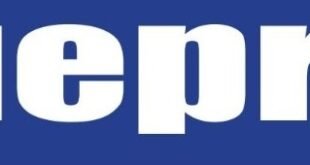Some border posts coat the Nigerian border show bureaucratic relics. In addition to the proliferation of functions that inherent delays trade and increases corruption, these border posts also suffer from poor infrastructure development. One of the borders is the Nigerian-Benin border area.
During a visit to Nigeria-Benin Frontier on May 7, 2025, Omar Touray, President of Ecowas, condemned the existence of various customs and immigration posts for the same border corridor. According to him, the duplication of the examination post delayed free trade and created opportunities for corruption, making traders lose confidence in border patrol agents.
On the Nigerian-Benin border, most border posts have different designations but have the same function, forcing traders to undergo repeated examinations and customs documentation, thus postpone the movement and shipping of goods.
The UN Economic Commission report for Africa in 2024 revealed that trading traders in Nigeria and Benin spent eight weeks or more on the Seme-Krake border on the path of goods that usually took less than six hours on the border of other African countries such as Botswana and Namibia.
Traders in Botswana and Namibia spent five hours, and an average of 50 minutes for customs processing and the road of goods at the Trans-KalaHari border, showed the development of fast goods in both countries.
Recently, both Namibia and Botswana are persistent in investing in an effective border mechanism. As a member of the World Trade Organization (WTO) Namibia substantially invests in its border infrastructure to meet global standards, harmonize with WTO trade facilitation agreements and accelerate border permits, increase trade.
In March 2025, Namibia launched a coordinated national border management strategy (CBM), an initiative that seeks to increase efficiency in trade facilitation and reduce non-tariff barriers at border posts. The launch of CBM came a few days after the Namibian Ministry of Industrialization and Trade introduced the National Trade Information Portal, a digital infrastructure designed to simplify traders access to trade -related information, stimulating international trade.
On his own, Botswana computerized its border posts in 2024 to improve cross-border efficiency and foster international trade.
The wrong funds are allocated to cause a technological deficit
Conversely, Nigeria, one of the African countries that advanced technologically, is still wrestling with the delay of bureaucracy and old infrastructure complex on its border with Benin, the fourth largest cotton exporter in Africa. Apart from Nigeria’s profits in technology, which can be better used to improve trade efficiency, especially along the land border, the country faces shortcomings in spreading and maintaining the necessary infrastructure that can help transnational exchange.
During the visit, Touray condemned the state of the disgraceful machine intended to facilitate free exchange. He stated that the Nigerian-Benin border was one of the busiest and most strategic borders in West Africa but was faced with expensive facilities, scanners, lighting systems, and bridges that did not function even though there was disbursement of funds for infrastructure.
Also read: Utomi Encourages Nigerian total ‘restructuring’
Excessive examination posts often result in errors in resource allocation.
In the Nigeria-Benin Frontier, the ineffectiveness of the facility even though the allotment fund illustrates misinterfly. This shows how the proliferation inspection post absorbs funds intended to maintain existing infrastructure such as scanners and lightning systems or to obtain sophisticated equipment.
Bureaucracy gives birth to immoral activities
In addition to bureaucratic obstacles and expensive but ineffective equipment, traders in the Nigerian-Benin border also experienced corruption practices that developed in security posts that were replicated at the Nigerian-Benin border. According to the 2024 Researchgate report by Ngozi Nzomah, corruption in the Nigeria-Benin Frontier mainly involved traders, passengers, and smugglers, with about 23 percent of cases related to immigration.
At the established Seme-Krake examination post, border officers are collectively and, sometimes, individually collect traders and crossers are not documented as bribes at various inspection points. In other cases, immigration officers help smuggling goods across the border after receiving bribes, this study revealed.
This disorder at the Nigerian-Benin border, observed in inefficient machines and corruption practices, is counterproductive for free trade in West Africa. The replication of the Customs Examination Post and the Immigration Post also reflects the bureaucratic tradition, leaving high operating costs and contrary to the mandate of the Ecowas -free movement.
Streamline cross -border trade for efficiency and transparency
Both Nigeria and Benin are the famous trade center for their greatness in imports and exports of goods. However, delay and corruption at the border point can frustrate and expel traders and travelers, reduced trade activities.
To improve border efficiency, the Nigerian and Benina governments need to improve the bureaucratic system, combine the inspection posts with overlapping functions and irrelevant post memos. This will reduce operating costs, and allow the allocation and use of the right funds. This will also eliminate the delays that are not requested and increase exchange transparency, reduce the tendency of corruption.
The state government in Nigeria and Benin must also diversify funds and invest in the right mechanism that increases the exchange of flexible goods and services cross -border. The funds used to serve expensive operating costs and maintenance of unused facilities that are outdated such as scanners must be diverted for the acquisition of digital facilities.
Digital payment systems and centralized portals as can be obtained at Botswana and Namibia can facilitate the customs process and the part of the goods at the Seme-Krake border. Instead of documenting goods manually, causing delays, traders will familiarize themselves with relevant information online and complete the necessary steps, making them only through immigration checks and customs at the examination post.
The Nigerian-Benin border area plays an important role in facilitating free trade throughout West Africa. However, systemic problems and bad behavior among border security operations counteracts the journey of goods and services that are free and easy throughout the border, eliminating the principles of free exchange.
To increase flexible exchange across their borders, the Nigerian and Benina governments must take critical action. They must combine the examination post with overlapping functions, reduce delays and increase transparency. Both countries must also prioritize investment in advanced technology. Cross -border exchange efficiency is very important for the success of overall free trade.
By: Favor Adeboye, a development journalist and a free trade partner at Ominira Initiative.
 JamzNG Latest News, Gist, Entertainment in Nigeria
JamzNG Latest News, Gist, Entertainment in Nigeria









